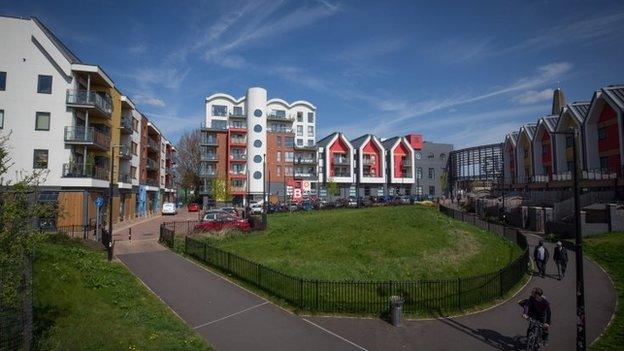Does right to buy extension add up?
- Published
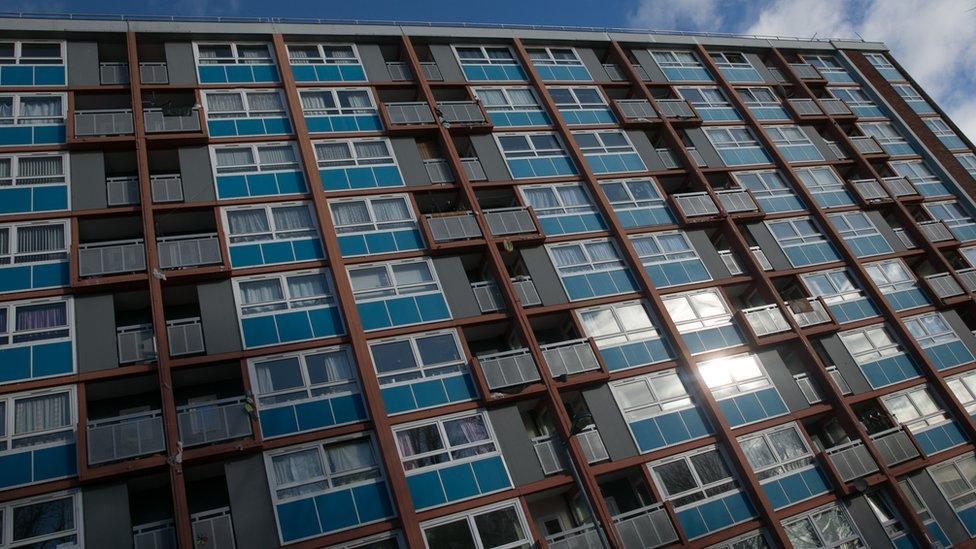
The government announced last year that the "right to buy" would be extended to housing association tenants.
But as the first housing association properties are about to be sold, questions are still being raised over how the policy will be funded.
The government was once the biggest landlord in Europe, but now it houses comparatively few - 1.6 million council-owned dwellings, in England, less than half the 3.5 million of 20 years ago.
But the decline started well before that.
In 1980, the biggest physical privatisation in British history began - the sale of council houses. The first one was sold in Romford, Essex, for £8,000 and has just been sold again by its current private owners for £260,000.
Last year, Prime Minister David Cameron announced the government would extend right to buy, which allows council tenants to buy their own homes at a discount.
This means an extra 1.2 million housing association tenants will have this same opportunity, and the first sales are expected imminently.
Where can I afford to live?
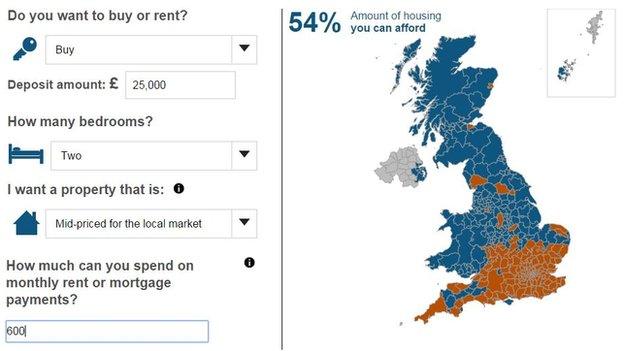

The problem, however, is that unlike with council houses, the government does not own these homes - so it has to compensate the housing associations for their loss.
This might cost £11.2bn, if all those tenants who could afford to buy did so, the National Housing Federation (NHF) - which represents all the UK's housing associations - has said.
In Wales, the government is planning to abolish right to buy entirely, and in Scotland it will be phased out by August 2016. A separate scheme exists in Northern Ireland.
Housing sell-offs
So how does the government suggest we pay for the English scheme?
Announcing the policy in April 2015, David Cameron said that as the most expensive properties fell vacant, councils would be required to sell them off, and the government would replace them with new affordable housing in the same area.
But this April, the Housing and Planning Act fleshed out the details and revealed two problems - starting with so-called expensive housing sell-offs.
The new law says that every council across England has to sell off their more expensive homes, but this could include both a £3m townhouse in Southwark, London, and a far more ordinary and cheaper two-bedroom bungalow in Nuneaton.
That money is then divided up and used to compensate housing associations across the country.
The scheme involves selling both London houses worth millions (left) and smaller, cheaper properties in places such as Nuneaton (right)
Campbell Robb, chief executive of the housing charity Shelter said:"The original intention was that some expensive council houses would be sold off in London and this would make the difference, but that's just not the case. During the passage of this act the government changed the definition to call it 'higher value properties'.
"We've estimated that's £26m of homes per council across the country. We've done research and that's two bedroom homes in the West Midlands, in Dudley - it's not big fancy homes in London, it's homes all across the country."
Waiting for homes
The other problem is that council housing is just not being built, despite the government saying every home - both council house and housing association - lost under this scheme will be replaced.
If we take Shelter's figure that around 113,000 council houses need to be sold to compensate housing associations and only one in eight are replaced, then around 100,000 social homes could be lost permanently.
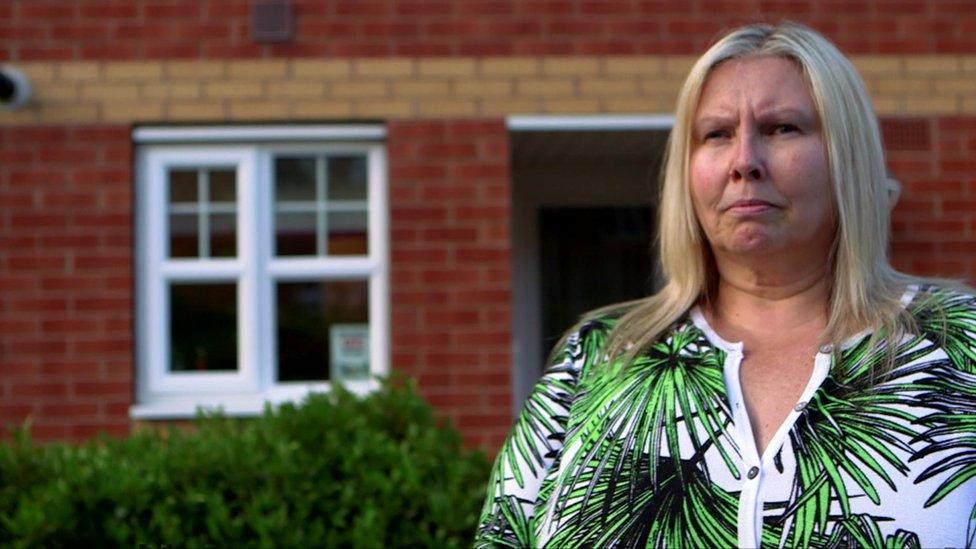
Lorna lost her home after losing her job
And that could be a big problem for the nearly two million people on the council house waiting list.
Lorna lost her job and then her home and is now facing eviction from her privately-rented tenancy.
She has been told there is a 25-year waiting list for a council home from her local authority, Nuneaton and Bedworth.
She says she was in full time employment for 30 years and now she needs help there's just nothing there.
"When I knew I was going to lose the house I went into a terrible depression and I just couldn't pull myself up out of it and at one point I did come close to suicide. There's going to be people like me who are in the situation that you've lost your home, you're on a low income, you need somewhere to live so there needs to be something in place to help anyone who needs help," she said.
'Impossible'
Haringey Council has recently built a block of flats as mix of social rent and shared ownership, but fears they might have to be sold off under the new legislation and would not be replaced.
Alan Strickland, the councillor responsible for housing in the borough said: "As the funding system works it's simply impossible for us to replace them to that extent. Nationally, only one in eight council homes are rebuilt- we think the government should cut the red tape and let councils build.
"It's hard to replace right to buy properties due to government rules which mean councils have to put up most of the money, you can't use right to buy money with any other grant which is commonly used, which really restricts the number of homes you can build."
Housing Minister Brandon Lewis said the government "makes no apology for helping people into homeownership".
"Our voluntary agreement with housing associations will mean 1.3 million tenants will have the chance to own their own home, while every home sold will be replaced with a new affordable property.
"The truth is there are billions of pounds locked up in local authority housing assets so it's only right that when higher value homes become vacant they are sold to support home ownership through right to buy and reinvested in building new homes that better meet local needs."
The Victoria Derbyshire programme is broadcast on weekdays between 09:00-11:00 on BBC Two and BBC News channel.
- Published28 April 2016
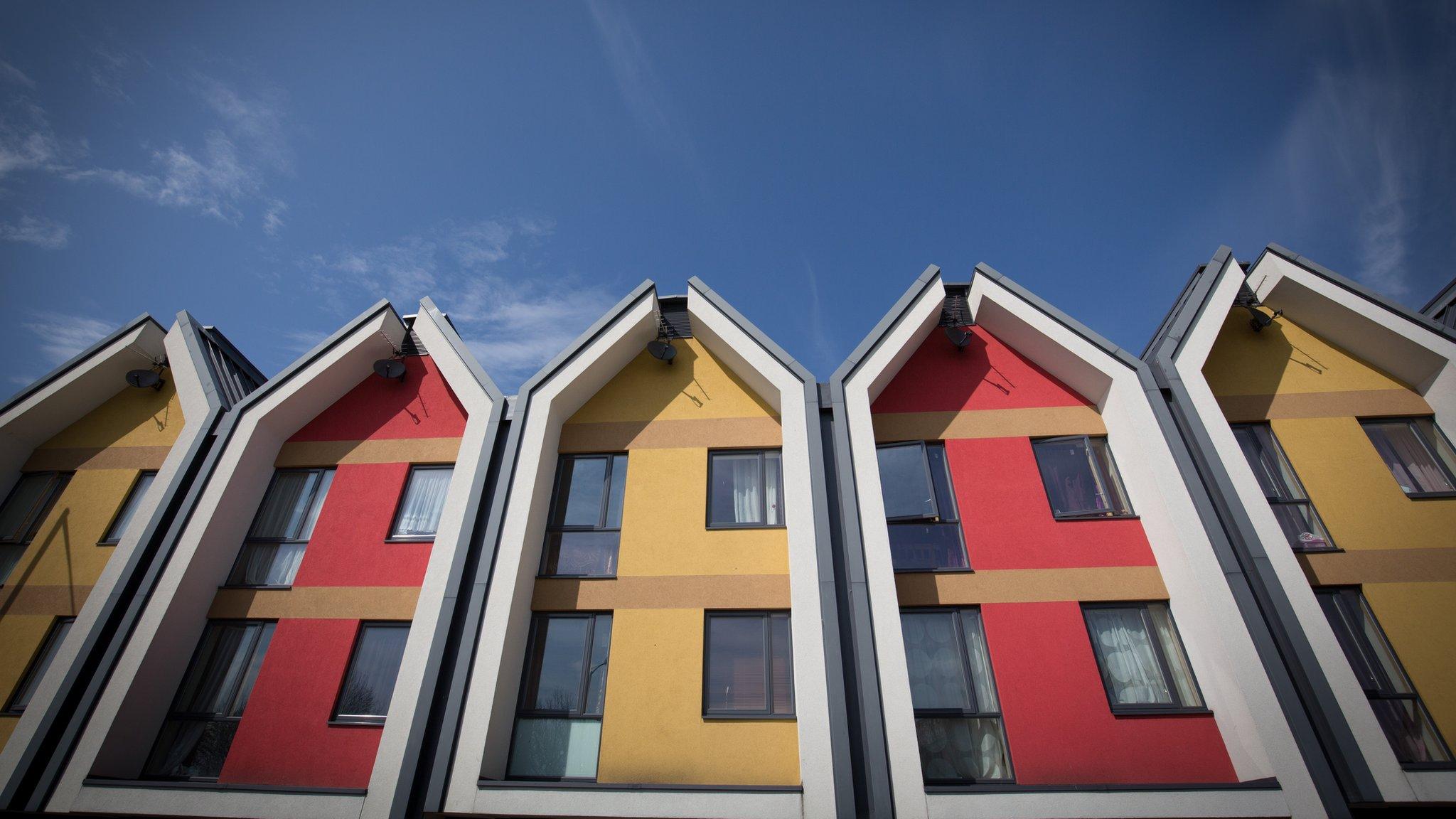
- Published29 April 2016
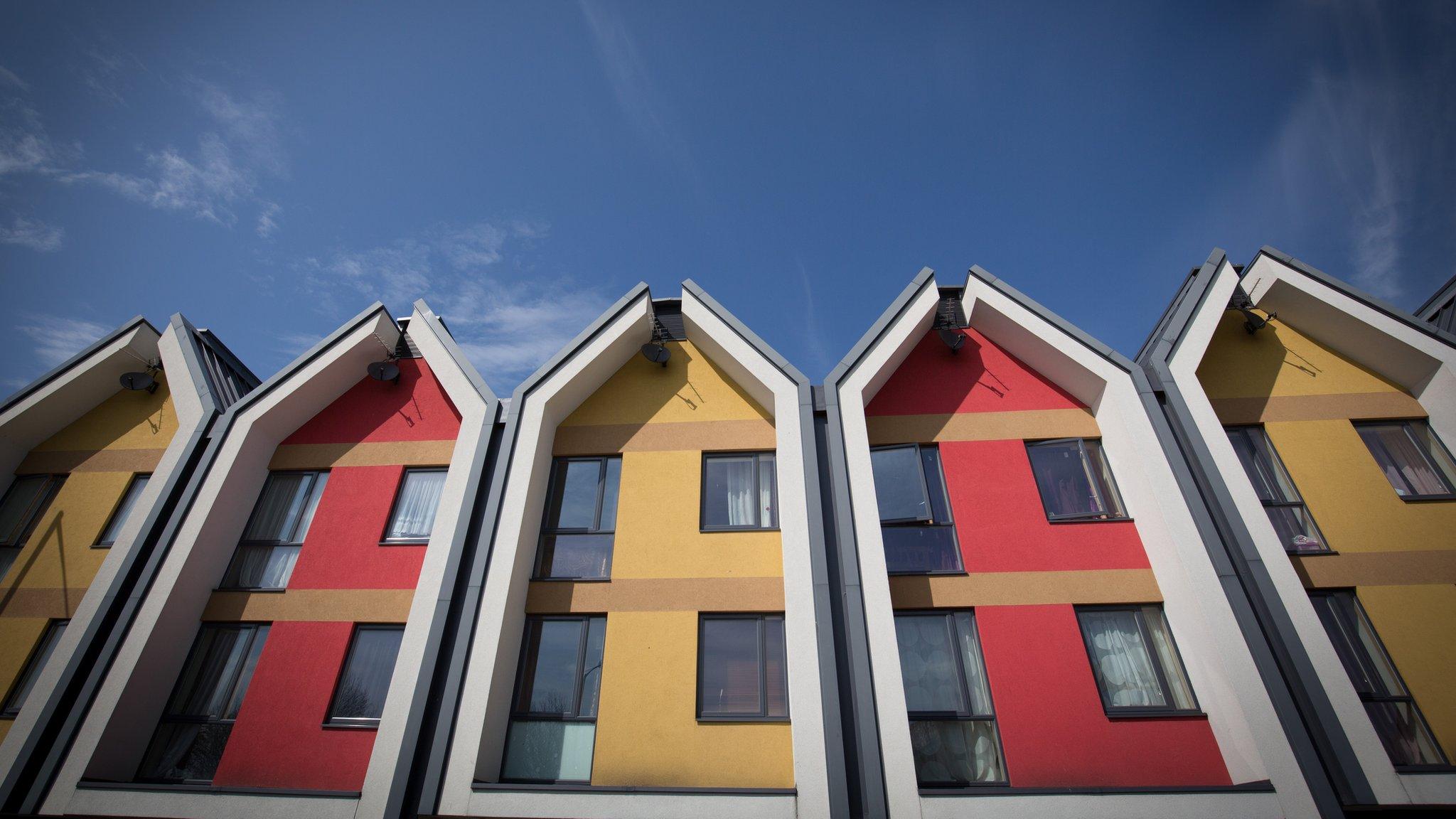
- Published26 May 2015
